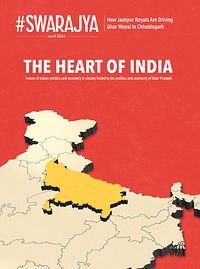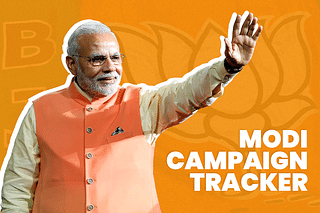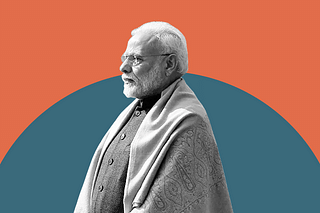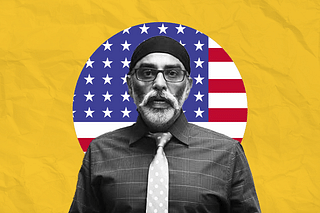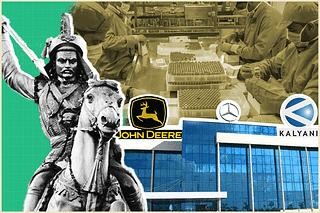Technology
Seventeen Indicators That We Will See A Cambrian Explosion Of AI In India In 2024
Banuchandar Nagarajan
Feb 04, 2024, 09:25 PM | Updated 09:19 PM IST
Save & read from anywhere!
Bookmark stories for easy access on any device or the Swarajya app.
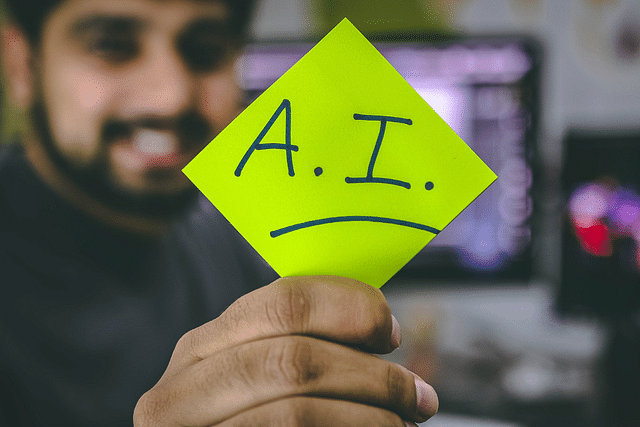
With regards to artificial intelligence (AI), 2024 seems to be the point where the hockey-stick graph takes off in India. Globally, AI is going great guns with the introduction of a plethora of chatbots, video-making software, robots, new mobile devices, and what not. The number of users in India is moving from a trickle to a torrent. While we dabbled with much curiosity last year, 2024 seems to be the year when rubber will hit the road. The government seems to have woken up to the challenges, and the opportunities, as well.
Let us examine a few pointers from various sections that indicate AI may be creeping in close to home. (A couple of points are from the United States, to give a sense of the thinking about the impact that AI may have globally.)
1. Business
Information technology (IT) giants Infosys, Tata Consultancy Services (TCS), and Wipro have indicated that they would not hire from campuses this year or would keep it to a minimum. The commentary following the Q3 (third quarter) results dilly-dallied on the reasons for the reduced hiring. Also, all these firms are building strong in-house teams, such as Infosys' Topaz and Wipro's AI 360, to build use cases of AI for global clients.
2. Startups
a. Bhavish Aggarwal's "Krutrim" became India's first AI unicorn (his third!), as he raised $50 million from Matrix Partners and others.
b. Last December, Nandan Nilekani gave sage advice to founders on what to focus on going forward. He said, "The data is what is missing; we don't have Indian language data, we don't have audio data, we don't have local data. So, fix the data problem... Don't waste your time on some model rat race... I'm making a bet that open-source models will become more and more permissible."
3. Government
a. The Chief Economic Adviser has warned about the possible impact of AI in the recently released Economic Review. He mentioned, "...the profound and troubling questions it poses for growth in services trade and employment since technology might remove cost competitiveness."
b. The Prime Minister's Economic Advisory Council has released a concept note on regulating AI as a complex adaptive system, like we do with the financial markets.
c. On the other hand, in a recent public discussion, a top bureaucrat with NITI Aayog posited AI as just another technological advancement, like the internet. He said we will tackle it the way we tackled previous disruptions and professed faith in India's tech talent.
4. Global Economy
The International Monetary Fund (IMF) recently released a paper on the impact of AI on jobs and mentioned that about 40 per cent of white-collar jobs are vulnerable to disruption.
5. Silicon Valley
a. The demos of the latest Rabbit r1 and Humane AI Pin only make us marvel at the amazing progress made in AI.
b. Elon Musk, in a conversation with futurist Peter Diamandis, said that humanity will have to be interesting to be allowed by the future digital gods to survive, like humans allowing chimpanzees to survive. He is a "techno optimist" and continually shares updates about "Optimus," the robot that he is building.
c. Silicon Valley thinkers expect a billion humanoids in society by 2040!
6. Politics
a. Joe Biden (and Taylor Swift) deepfakes were circulated on social media recently. Deepfakes of Rashmika Mandanna and Sachin Tendulkar rattled India in the last few months. With the election season approaching, it is inevitable that we will see more of them. Technologists have imagined a doomsday scenario where a single, well-made deepfake released right before polls will alter the course of democracy. Minister Ashwini Vaishnaw gave a veiled threat to social media companies last month to be vigilant about fake news and deepfakes.
b. In December 2023, Prime Minister Narendra Modi gave a wonderfully comprehensive speech at the Global Partnership on Artificial Intelligence Summit. It has to be listened to or read in full.
7. Popular Culture
a. In the recently released trailer of the film Teri Baaton Mein Aise Uljha Jiya, the heroine that comes out as a robot asks poignantly, "Robot hona buri baat hai kya (Is being a robot a bad thing)?" Mind you, it is not a sophisticated mind-bender like Westworld, but a run-of-the-mill romcom (romantic comedy), which means that robots are penetrating the Indian psyche very fast.
b. The Instagram handle "naina_avtr," calling herself or itself (what are the pronouns for robots?) "India's first AI superstar," promotes fashion and beauty products. Interestingly, its made-up backstory is that "she" is a 22-year-old from Jhansi (not South Delhi).
c. A R Rahman used voices of deceased singers Shahul Hameed and Bamba Bakya in the recent Rajinikanth-starrer, Lal Salaam.
8. Spirituality
Hinduism has been among the most science-friendly faiths. When it comes to AI, it seems our spiritual gurus have not yet faced up to the facts. In a recent open conversation with Swami Vigyananda, an Indian Institute of Technology (IIT)-educated spiritual guru, when asked about AI, the Swami ji referred to it as just another "yantra" to be controlled by humans. But he also lamented that schools that used to update future gurus and provide peripheral knowledge are dying, and maybe the investment in those would help.
9. Books
The Coming Wave: Technology, Power, and the Twenty First Century's Greatest Dilemma by Mustafa Suleyman (with Michael Bhaskar), one of the co-founders of "Deep Mind," sits on top of the international bestseller lists. The author warns against "pessimism aversion" of tech superstars (like Musk) and the great dangers of unregulated AI. He says global efforts at nuclear deterrence point to an effective containment template.
Starting this year, we have to shed our smugness and prepare ourselves for this crazy future. It will affect everything. There is a naivete in our innate nature that makes even the novelty of human-like tech wear off quickly. We chat away with ChatGPT and Grok. A Google engineer, who was fired, even thought that their chatbot, LaMDA, had become sentient!
Suleyman says containment of AI is impossible. How we regulate AI to enact "Sabka Saath, Sabka Vikas" will be a challenge. With the JAM (Jan Dhan-Aadhaar-Mobile) trinity, we already have the architecture to build social safety nets. How AI interacts with Indian agriculture — the largest employer and the least productive sector — will be something to watch out for. In manufacturing, probably we will add "human jobs" clauses to "production linked incentives" schemes.
It is predicted that India will be a middle-income country with a national income of more than $4,000 per capita by 2030. How equally that wealth is distributed will be important for our national character. Thus, Modi 3.0 will come at a very crucial time, when the country with the largest population will face up with the mightiest technology ever created. What happens when an unstoppable force meets an immovable object is anybody's guess!
Save & read from anywhere!
Bookmark stories for easy access on any device or the Swarajya app.
Banuchandar is a political and public policy advisor. He posts at @Banu4Bharat.
Introducing ElectionsHQ + 50 Ground Reports Project
The 2024 elections might seem easy to guess, but there are some important questions that shouldn't be missed.
Do freebies still sway voters? Do people prioritise infrastructure when voting? How will Punjab vote?
The answers to these questions provide great insights into where we, as a country, are headed in the years to come.
Swarajya is starting a project with an aim to do 50 solid ground stories and a smart commentary service on WhatsApp, a one-of-a-kind. We'd love your support during this election season.
Click below to contribute.
